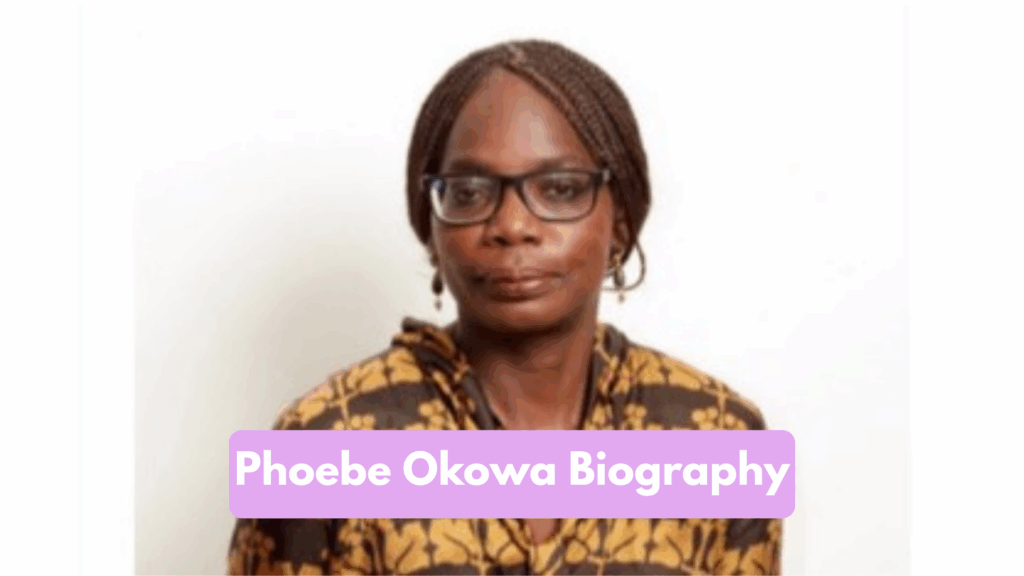Phoebe Okowa Biography: Education, Career, Husband, Nationality, Age, Net Worth 2025

Phoebe Nyawade Okowa is one of Africa’s leading public international law scholars. Her career spans academia, international adjudication, and advisory roles to states and international organizations.
In November 2025 she reached a new pinnacle: election to the International Court of Justice (ICJ), bringing decades of scholarship and practice to the world’s highest court for disputes between states.
Early life and education
Born in Kericho, Kenya (1 January 1965), Phoebe Okowa distinguished herself early as a brilliant law student. She earned her LLB with First Class Honours from the University of Nairobi in 1987 — reportedly the first woman to receive a first-class honours degree from that faculty — and was called to the Kenyan Bar in 1990. She then won a Foreign and Commonwealth Office scholarship to Wadham College, Oxford, where she took the Bachelor of Civil Law (BCL) and later completed a D.Phil. under the supervision of noted scholars.
Academic career and scholarship
Okowa has been a Professor of Public International Law and Director of Graduate Studies at Queen Mary University of London. Her scholarship covers state responsibility, environmental and climate law, human rights, and sources of international law. Her books and articles — including work on transboundary pollution and international environmental obligations — are widely cited and used in both academic and adjudicative settings. Her research combines doctrinal rigour with practical engagement, frequently informing cases and advisory opinions at international tribunals.
Professional practice and international roles
Alongside academia, Okowa has practised as an advocate of the High Court of Kenya and served in advisory and counsel roles for states and NGOs before international bodies. She was appointed a Member of the Permanent Court of Arbitration in The Hague by Kenya and, in 2021, was elected to the United Nations’ International Law Commission (ILC) for a five-year term — becoming the first African woman to serve on that body. Her ILC work, particularly on state responsibility and the codification of international law, has raised her international profile.
ICJ election (November 2025) — significance and context
In November 2025 Okowa was elected as a judge of the International Court of Justice. Her election followed multiple rounds of voting in both the UN Security Council and the UN General Assembly and marked a major milestone for Kenya, which achieved its first successful bid for an ICJ seat with her candidacy. As an ICJ judge, Okowa joins a bench of 15 jurists tasked with resolving disputes between states and rendering advisory opinions on questions of international law. Her background on complex topics — climate obligations, maritime delimitation, and human rights — positions her to contribute substantively to the Court’s jurisprudence.
Key cases, contributions and areas of expertise
- Climate change and state obligations: She has participated in academic and advisory exchanges relating to states’ obligations tied to climate change, an area increasingly surfacing at international courts and tribunals.
- Territorial and maritime disputes: Her writing and counsel work have touched on maritime delimitation and state responsibility, topics that routinely reach international adjudication.
- Human rights and international humanitarian law: Okowa has engaged with questions concerning human rights law in occupied territories and other politically sensitive contexts, contributing to debate and legal analysis used in hearings and public sittings.
Her combination of scholarship and courtroom experience makes her an influential voice in shaping legal reasoning at the intersection of academic doctrine and the practical demands of international dispute resolution.
Awards, honours and institutional recognition
Okowa’s contributions have been recognized by academic institutions and professional bodies. Highlights of recognition include honorary doctorates, visiting professorships (including Hauser Global Visiting Professor at NYU), election to learned societies and advisory committees, and selection to prestigious bodies such as the ILC and the Permanent Court of Arbitration. These honours acknowledge both her scholarly output and her influence on the development of international law.
Personal profile and mentorship
Colleagues describe Okowa as rigorous, collegial and deeply committed to mentorship. Through supervising graduate students, participating in international workshops, and lecturing around the world, she has mentored a new generation of international lawyers — particularly from Africa — and helped expand the geographical diversity of voices shaping international legal norms.
Why Phoebe Okowa matters — impact on international law
- Representation and diversity: Her presence on the bench adds to the geographic and experiential diversity of international adjudicators, helping ensure a broader range of perspectives in interpreting global law.
- Bridging theory and practice: As a scholar-practitioner she exemplifies how academic research can directly inform high-stakes legal decision-making.
- Focus on contemporary challenges: Her expertise in climate obligations and state responsibility is especially relevant as international law wrestles with global environmental crises and evolving questions of state accountability.
Frequently Asked Questions (FAQs)
Q1: Who is Phoebe Okowa?
A: Phoebe Nyawade Okowa is a Kenyan professor of public international law, an advocate of the High Court of Kenya, a member of the UN International Law Commission, and — as of November 2025 — an elected judge of the International Court of Justice.
Q2: What are her academic qualifications?
A: Okowa holds an LLB (First Class) from the University of Nairobi, a BCL from Wadham College, Oxford, and a D.Phil. from Oxford.
Q3: What major institutions has she been affiliated with?
A: She has been a professor at Queen Mary University of London, a member of the Permanent Court of Arbitration, and a member of the UN International Law Commission, among other appointments.
Q4: What is the significance of her election to the ICJ?
A: Her election marks a historic achievement for Kenya at the ICJ and brings an experienced African scholar-practitioner to the Court at a time when global legal questions about climate, territorial disputes, and human rights are front and centre.
Q5: Has she advised on controversial international issues?
A: Yes. Okowa has been involved as counsel, consultant or academic expert in matters touching on politically sensitive issues — including advisory questions about Israel/Palestine and state obligations related to climate change — which have been part of public and judicial debate.
Conclusion
Phoebe Okowa’s journey from Kericho to the halls of international adjudication exemplifies the global reach of exceptional legal talent. Combining rigorous scholarship, practical courtroom experience and institutional leadership, she has helped shape modern international law and — through her election to the ICJ — will now play a direct role in deciding its future contours. Her career is a powerful example of how academic excellence and public service can intersect to produce lasting influence on the global stage.


